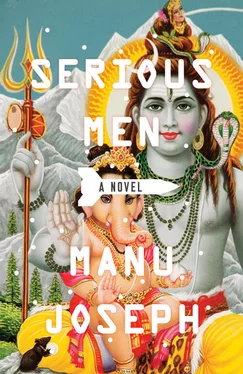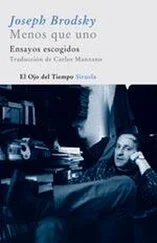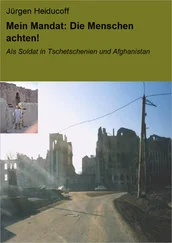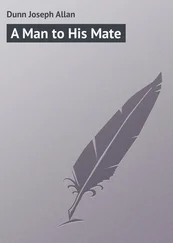Basu launched into the structure of the new Seti department, even though the radio astronomers had already been briefed. When he spoke, he kept glancing at Oparna, who decided that she would toy with her mobile. He eventually fell silent because he had nothing more to say and everybody was looking grim and distracted anyway. The brooding wait resumed: all ears were listening for the door.
When Arvind Acharya walked in, one of the scientists stood up on impulse, thereby greatly ruining the ‘aggressive position’ Nambodri had said they should take. Acharya sat between two radio astronomers who looked more keenly at the table than they really needed to. Nambodri was disturbed by his old friend’s calm. He knew something was wrong.
‘Thanks for coming,’ Basu said, with a gracious smile. ‘Let me now …’
Acharya held up his hand to him and said, ‘Shut up.’
Basu’s elegant face appeared to lose size. He tried to form words. ‘Excuse me? I don’t understand,’ he said, looking severe. ‘What do you mean by that?’
Acharya consulted his watch.
‘I don’t understand this.’ Basu raised his voice.
‘Do you understand everything, usually?’ Acharya asked. There was something about the way he said it, with the deep serenity of an ancient pedagogue, that brought about another silence.
The radio astronomers looked at each other. Acharya consulted his watch again. There was the sound of a mobile phone vibrating in silent mode. It was a persistent spasmodic screech. Basu reached for his coat and took out his mobile. He saw the number and went to a corner of the room.
‘Yes, Sir. Yes, Sir,’ the astronomers heard him say with a sinking feeling.
‘Yes, Sir. Yes, Sir,’ Basu said many times. It was a private dialect of bureaucracy, and it had no other words.
When Basu put the phone back in his coat pocket, Nambodri knew the revolution was over. Basu sank into his chair looking pale.
‘Dr Acharya,’ he said, ‘the Minister has asked me to apologize for any inconvenience this may have caused you. We are dropping our proposal to start a Seti department and the matter will not be broached as long as you are opposed to it.’
Basu rubbed his nose during the pause and continued, somewhat pathetically, ‘I hope you understand my efforts were in the best interest of science. I really believed that the search for extraterrestrial intelligence is a very important step forward. I thought it had defence implications too. I may have been wrong, but I hope you will get inside my mind and see the …’
‘I have been inside your mind,’ Acharya said. ‘It was a short journey.’
Basu left the room first. Oparna followed. The radio astronomers then rose, one after the other, and left the room in a funereal procession. Only Acharya and Nambodri were left. They sat still, the officious parabola of the oval table between them. Nambodri was smiling. The smile reminded Acharya of the arrack drinkers who used to fall defeated in the paddyfields of his childhood.
‘I thought you were beyond office politics,’ Nambodri said, ‘but it looks as if you have learnt a few things from the little men, as you call us. I forgot how famous you are, Arvind. Who did you call? The PM? The President? Who did you call?’
‘I want you out, Jana.’
Acharya felt sorry for this old man who did not know he was old, with whom he had spent many summers of his youth in a cold distant land, when together they had so much hope for each other and the world.
‘What do you want, you bastard?’ Acharya asked, almost in anguish.
‘What do I want?’ Nambodri said, with a sad chuckle. ‘I just want to search for extraterrestrial intelligence, Arvind. It’s very simple. What do you want?’
‘I want scientists in my institute to work on real science. If radio astronomers here are bored with pulsars, then they must quit and grow rubber on their fathers’ hills. Not chase alien signals.’
‘We have been saying the same things to each other for a long, long time,’ Nambodri said, ‘like two people in a bad marriage.’
‘Tell me something,’ Acharya said, in a tone that was remarkably kind. ‘Do you really believe you are going to find a signal from an advanced alien civilization?’
‘There is no reason why we shouldn’t.’
‘That’s not what I asked. Do you believe you will? What do you believe? Remember the word “belief”? That thing you had when you were twenty? What exactly do you believe? When you wake up in the morning, what do you know is certainly true?’
‘Not all of us are meant to believe, Arvind. Some of us can only wonder and, on good days, hope. Do you really believe that all life on Earth came from outer space?’
‘Yes. I don’t just believe. I know.’
‘Through microscopic spores that came riding on comets and meteorites?’
‘Yes,’ Acharya said peacefully. ‘And you know what? I also believe that these spores fall on different worlds in different corners of the universe and they spawn life that is suited to those conditions. Life that could be vastly different from what we can imagine. Life that could even evolve into giant zero-mass beings. Like massive clouds. Things we cannot even imagine.’
‘Why don’t you go public on this hypothesis then?’
‘It is not a hypothesis,’ Acharya said softly. ‘It’s a theory.’
In the Institute, a hypothesis was a good idea, but a theory was a good idea that deserved funds.
Acharya rose from the chair, holding his left knee for an instant. When he reached the door, he heard a sad voice ask, ‘Is there a way I can stay on, Arvind?’
Ayyan Mani was furious. The war of the Brahmins had ended so fast. And ended in the banal way in which medieval no-talent writers finished their moral fables — the great triumphing over the petty. The loss of anticipation deepened the grimness of his routine and he was filled with the fatigue of an unbearable boredom. When Oparna stood by his desk and asked to see Acharya, he did not even look at her. He just made a call and sent her in.
She entered the den, as usual, wondering why she could hear her heart every time she saw this man and if this fear had more disturbing names.
‘I came here to tell you that I didn’t know why I was called to that meeting,’ she said. ‘I don’t want you to think that I am part of what they tried to do this morning.’
‘I know,’ Acharya said. She stood there in the vain hope that he would ask her to sit down and tell her how unfortunate it was that she was caught in the middle of all this, or maybe they could talk about the balloon that they would soon send to the stratosphere. But he was reading.
After she left the room, Acharya tried to remember something. He had told himself that he would recall it later, but he could not place the moment. Then it came to him: it was when he had seen Oparna in the conference room, he had felt something. It was like a stab, a trivial feeling of betrayal and then a more elaborate agony as though she had died and left him alone. He was not surprised that he thought of her death. Everybody died, the young especially. But why should her death make him feel deserted? He considered the matter for a few seconds, but then his mind drifted to the triumph of remembering it. Nowadays, problems that he scheduled for the future never returned to him.
THE FUMES GLOWED in the car lights, and they cast giant fleeting shadows of pedestrians in the air. In the vapours of the late evening traffic, cars and trucks lay stranded on the lane as if they were all trying to flee from an approaching calamity. Heads peered out of the windows. Long lines of honking vehicles melded and expanded until, somewhere ahead, they became a huge unmoving knot of metal and smoke. In the heart of the jam was a black Honda City, its bumper torn off. A girl whose navel was pierced by a glimmer of silver, and whose small pink T-shirt said in gold ‘Skinny Bitch’, was standing in a daze. Her hands were spread out, and she said in English, several times, the same thing: ‘What the freaking hell?’
Читать дальше












